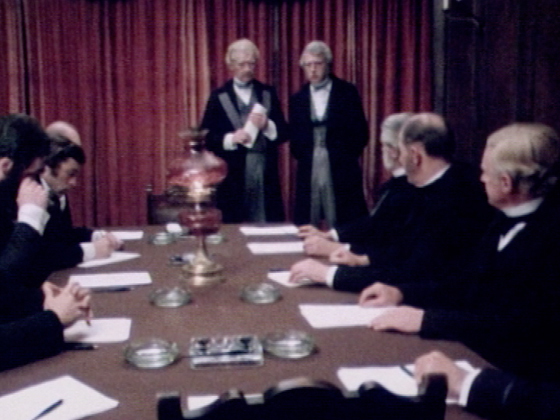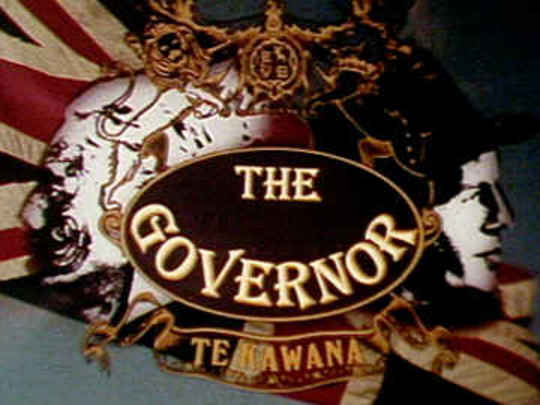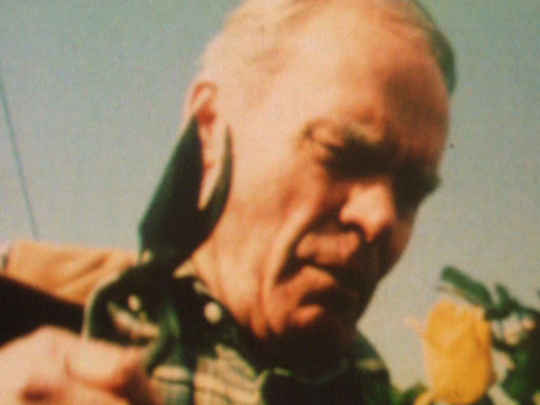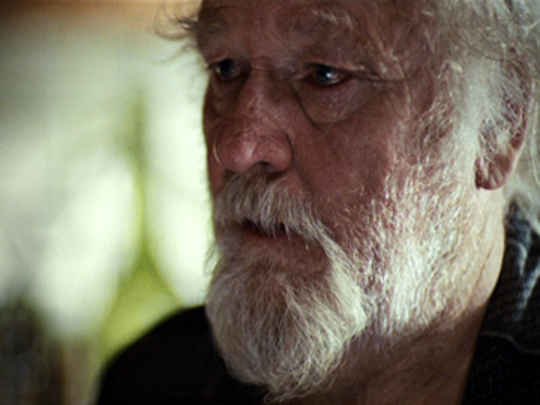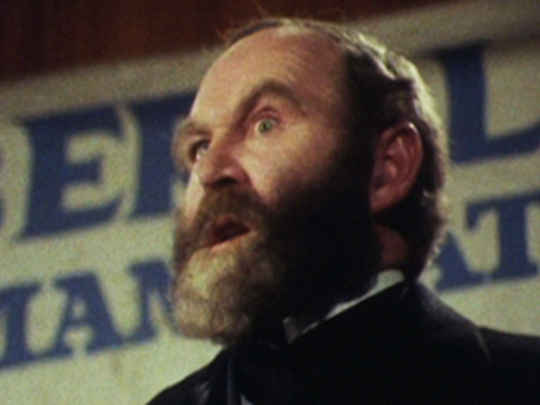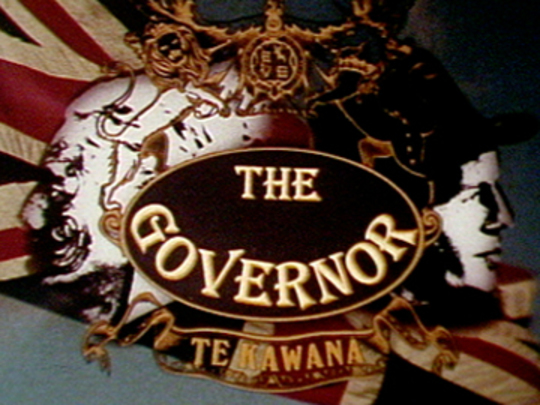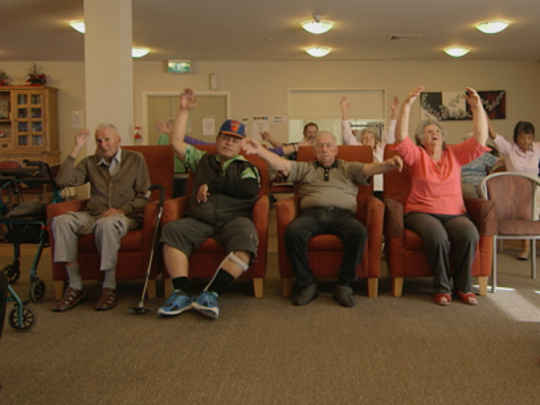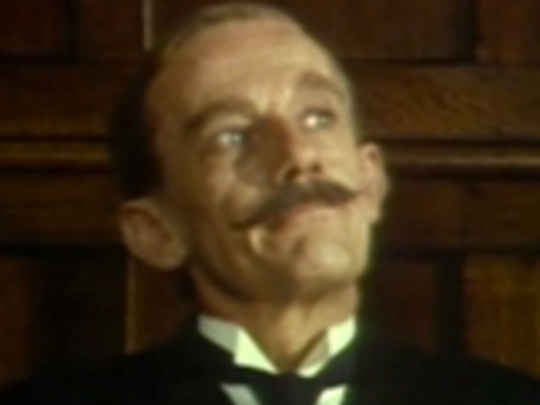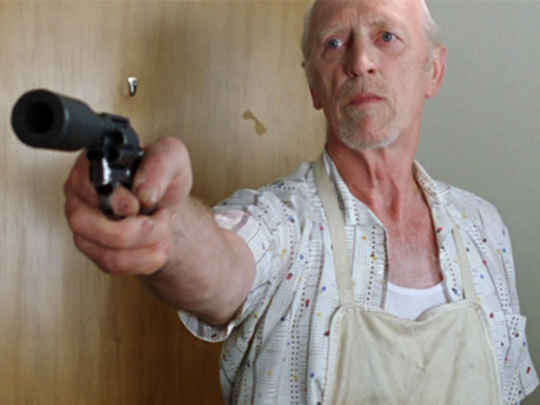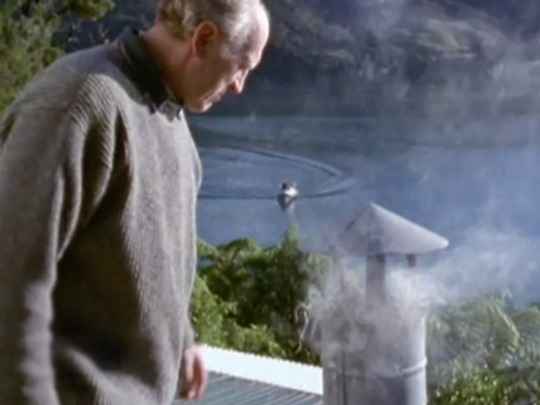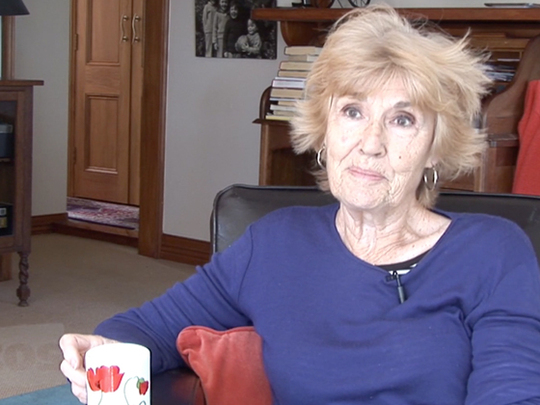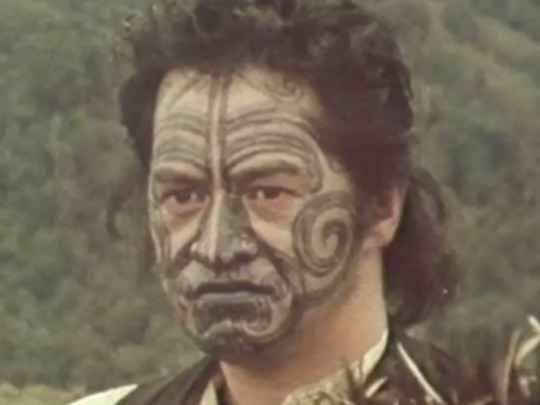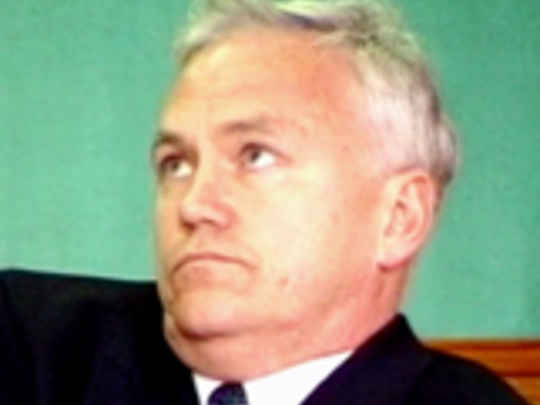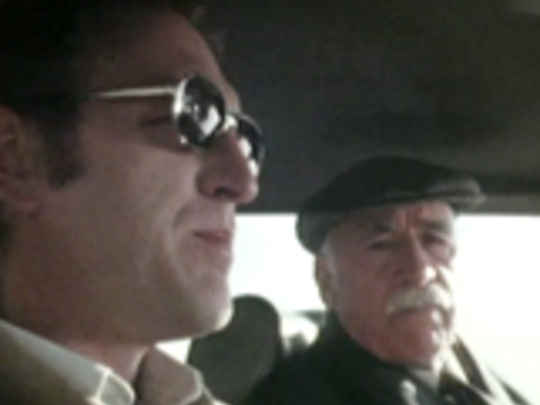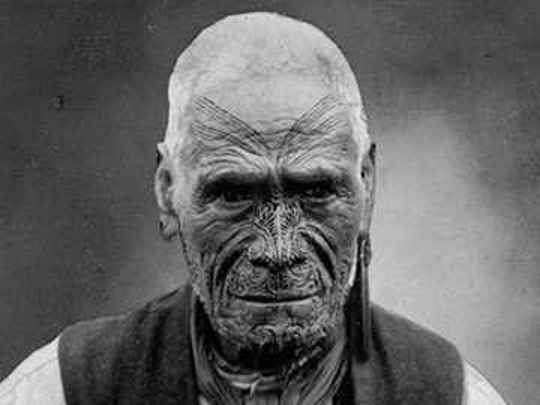When I look at you gentlemen, I see all the evils, all the inequity of this continuous ministry staring me in the face. Your parliament represents nothing but conservatism and property. Well, I say that the heel of the populace should be placed upon the doctrines of your kind and they should be ground into the dust! I will sacrifice everything, even life itself, to put an end to a system which deprives the people of their rights and liberties, and which turns ordinary men into the slaves of your ruling class.
– Sir George Grey (Corin Redgrave) marks his political comeback with a fiery speech
Leave the Parihaka to Te Whiti. Give back the Waitara. And bring the Māori King home to the Waikato.
– Ngāti Maniapoto leader Rewi Maniapoto (Wi Kuki Kaa) gives an ageing Sir George Grey a list of burning grievances for his people
Well Seddon, how does it feel to have joined a party that's about to tear itself to pieces?
– Liberal MP John Sheehan (John Bach) greets Richard Seddon (Marshall Napier) as Grey's party leadership explodes
We cannot any longer continue to accept government by cabals of men whose only political philosophy appears to be the retention of power. We must stand for something: proclaiming who we are and what we represent.
– Sir George Grey (Corin Redgrave) embraces party politics
Then you will die with the weight of the Waitara on your heart.
– Wiremu Kīngi Te Rangitāke (Paka Tawhai) to George Grey, on the injustice of the settler land grab at Waitara
Old Donald runs the Land Purchasing Department just like Grey used to: the golden coin in the iron glove.
– Premier William Fox (Antony Grosser) on the irony of Sir George Grey attacking Sir Donald McLean
I find little pleasure in spent volcanoes.
– Hawke's Bay Superintendent Jack Ormond (Stephen Crane) on having no desire to talk to Sir George Grey
I am not most men, Nancy ... But I am a failure. I don't know why...and now I'm an old man.
– A weary George Grey (Corin Redgrave) opens up to his maid Nancy (Vivienne Riddle), early in this episode
One day they'll remember what I did for this country. Without me it'd still be a wilderness.
– A bitter Sir George Grey (Corin Redgrave) reflects on his life
It's not the bitterness finally that worries me, but his theatrical eloquence ... People listen. The man sways Parliament as an actor on the stage sways his audience.
– Opposition leader William Fox (Antony Grosser) discusses the effectiveness of Liberal Premier George Grey
Many of my outrageous proposals were passed by the very men who opposed them.
– An elderly Sir George Grey (Corin Redgrave) on the irony of a 'failed' political career
In 1875 Grey was elected superintendent of Auckland province and also to Parliament for Auckland City West. He fought vigorously in Parliament and in public to save the provinces, but without success. The Atkinson government persisted with abolition, but soon lost on a vote of no confidence over its lack of other policies. In October 1877 Grey became premier. His cabinet included some conservatives, as well as radicals such as John Ballance and Robert Stout. As he did not have a safe majority in the House, Grey asked for a dissolution, which was refused by the governor, Lord Normanby. Grey now stumped the country, stirring up considerable enthusiasm for radical causes, such as 'one man one vote'.
– Keith Sinclair on Sir George Grey's short stint as Premier of New Zealand, Te Ara website
I feel we sit here today and we're a very smug lot about the way we handled colonial days. In fact I think we had much greater opportunities and Grey certainly believed I think, that certainly at the beginning we had the ultimate opportunity for a sort of Utopian society...and then we stuffed it up. One of the messages is, perhaps for God's sake let's stop being smug about this place we live in. We didn't make such a great job of it and we could have made a much better job of it.
– Writer Keith Aberdein on the core theme of his 'controversial' drama The Governor, page 40, The Listener, 1 October 1977
Changing times demanded different hands at the helm — people more used to constraint and less animated by an uncompromising idealism. Grey — who had once, famously, told the commander of the British Imperial troops in New Zealand that he regarded Colonial Office orders to be no more than "general indications of a line of policy to be pursued" — was now out of step and out of favour. "A rogue elephant in the political jungle," one biographer called him. Seven years had passed since he had been forced to resign as premier, and now, a mere opposition MP, he had little public influence and no followers.
– Vaughan Yarwood describes Sir George Grey's later life in his cherished home on Kawau Island, NZ Geographic Magazine, July 1998
The old fool thinks he's a revolutionary on some barricade.
– Ex Premier Sir William Fox (Antony Groser), as Sir George Grey (Corin Redgrave) makes one of his fiery speeches in parliament
It is generally felt that the later history of Sir George and Lady Grey has been peculiarly sad. Reunited after a separation of nearly 40 years — a separation which is understood to have been due mainly to mutual misconception, exacerbated by incompatibility of temper — it seemed as if their evening of life were to pass away in the utmost harmony and happiness. But all too soon came the first trouble. Sir George Grey was seized with a peculiar form of illness...
– The NZ Herald, 18 October 1898
You have changed. We have all changed. You...once you were so sure. Now there is always a question in your eyes.
– Rewi Maniapoto (Wi Kuki Kaa), after meeting George Grey (Corin Redgrave) again
The challenges of bringing such an audacious project to life drew together the best in the business. It was a young industry, and the project stretched the boundaries of what they'd previously experienced and thought was achievable. But they made it happen. There are times when given sight of the end game and the collective drive, a group people work together, fire off one another and achieve results that wouldn’t otherwise have been possible...and The Governor was one of those.
– Joan Isaac, wife of late Governor producer/director Tony Isaac, 31 March 2022
Naturally fond of devious ways and unexpected moves, he learned to keep his own counsel and to mask his intention ... so far as persons went, his antipathies were stronger than his affections, and led him to play with principles and allies. Those who considered themselves his natural friends were never astonished to find him operating against their flank to the delight of the common enemy.
– Writer William Pember Reeves describes George Grey in his 1898 book The Land of the Long White Cloud: Ao Tea Roa, page 229
The Māoris believed that great chiefs on death rose into the firmament to shine upon them as stars. Rewi Maniapoto, defender of Ōrākau, and now near to death, was given this luminous quality by Kuki Kaa. Sad but shining he met Grey in the noble bush for the last time.
– Reviewer Richard Campion praises a noteworthy scene from the last episode, The Listener, 3 December 1977
...the probe by the sub-committee revealed that the actual cost of producing The Governor was $1,363, 700 — or nearly four times the original estimate and nearly equal to TV1's total drama budget for two years.
– Confirmation of The Governor's budget, at a meeting of a Parliamentary Public Expenditure Committee looking at "various operations of the Broadcasting Corporation", Otago Daily Times writer Eric Benton, 25 September 1978
It was astonishing. When he played Wilde he was totally in the present; you didn’t see Corin crying, you saw Oscar Wilde crying. He brought all his suffering, everything he’d been through, to his performance — he was so brave and so sad.
– Kika Markham, widow of Governor star Corin Redgrave, on how Corin's memory problems in late life often melted away when he went onstage, The Guardian, 20 September 2014
